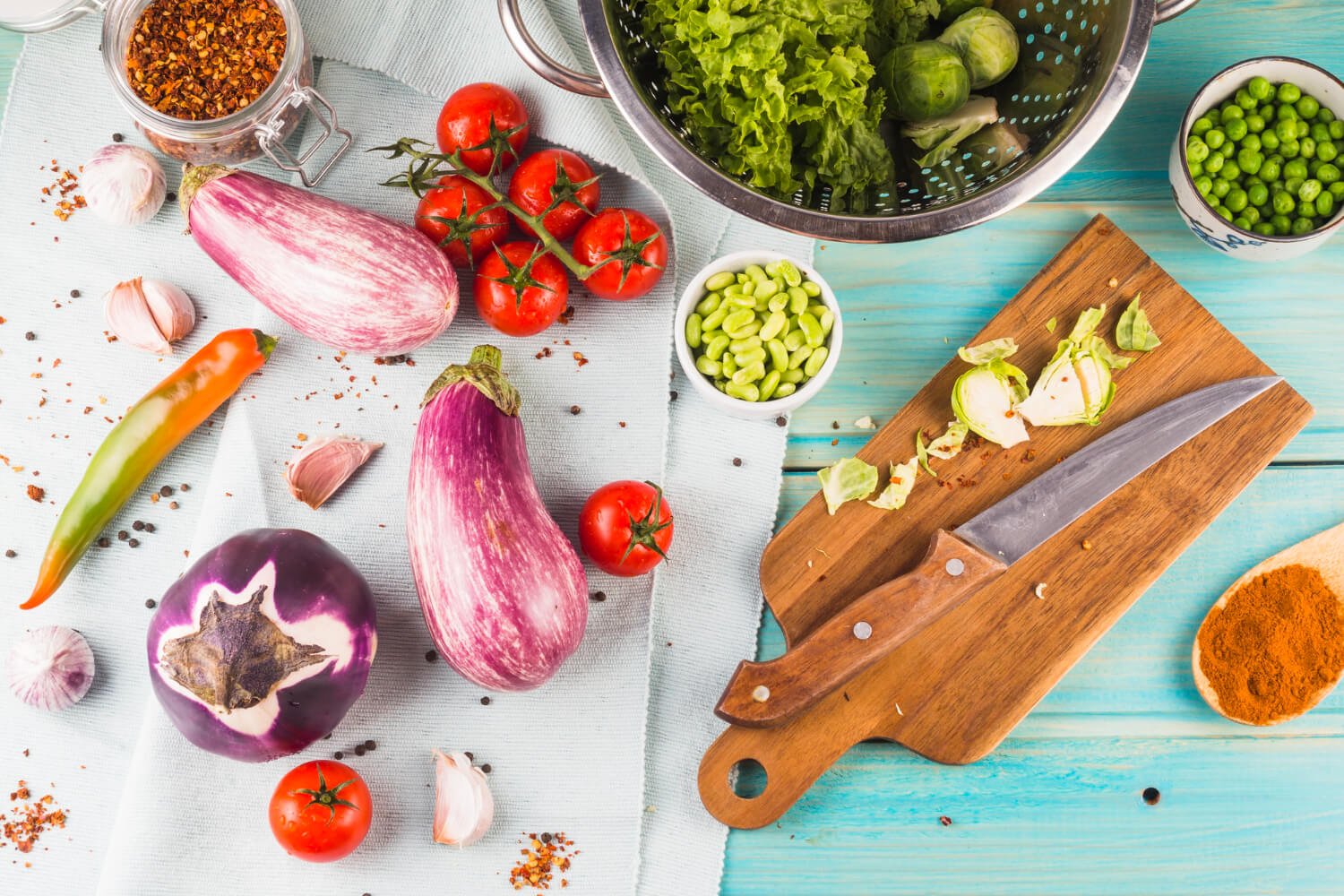
What Is Vegan Cooking? 🌿
Vegan cooking is the art of preparing meals that are entirely free from animal products.
That means no meat, dairy, eggs, or honey — only plant-based ingredients.
But it’s more than just what’s missing — it’s about:
Exploring new flavors
Getting creative with ingredients
Cooking with compassion and intention
Whether you’re doing it for your health, the planet, or ethical reasons, vegan cooking is a joyful and delicious journey.
Why Cook Vegan?
Cooking vegan meals brings powerful benefits that go beyond the plate:
🌱 Health Benefits
A whole-food, plant-based diet has been associated with:
Improved digestion and energy
Lower cholesterol and blood pressure
Reduced risk of certain chronic illnesses
🌍 Environmental Impact
Plant-based cooking helps reduce:
Greenhouse gas emissions
Water usage
Deforestation from animal agriculture
❤️ Ethical Living
Cooking vegan supports kindness toward animals and aligns with a cruelty-free lifestyle.
Must-Have Ingredients for Every Vegan Kitchen
Before you start cooking, it’s helpful to stock your kitchen with plant-powered essentials. Here are some common ingredients used in vegan recipes:
● Fresh fruits and vegetables
● Whole grains (brown rice, quinoa, oats, bulgur)
● Legumes (lentils, chickpeas, black beans)
● Nuts and seeds (chia, flax, almonds, sunflower seeds)
● Plant-based milks (oat, soy, almond, rice)
● Tofu, tempeh, and seitan
● Nutritional yeast for cheesy flavor
● Herbs and spices for seasoning
● Natural sweeteners (maple syrup, agave, dates)

Essential Vegan Pantry Staples
Keep these staples on hand for quick and nourishing meals:
Olive oil and coconut oil
Tamari or soy sauce
Canned beans and tomatoes
Pasta (egg-free) and noodles
Peanut butter or tahini
Apple cider vinegar and balsamic
Baking powder, soda, and cocoa powder
Oats and cereal
Vegetable broth (liquid or cube form)
💡 Tip: A well-stocked pantry makes plant-based cooking faster and easier.
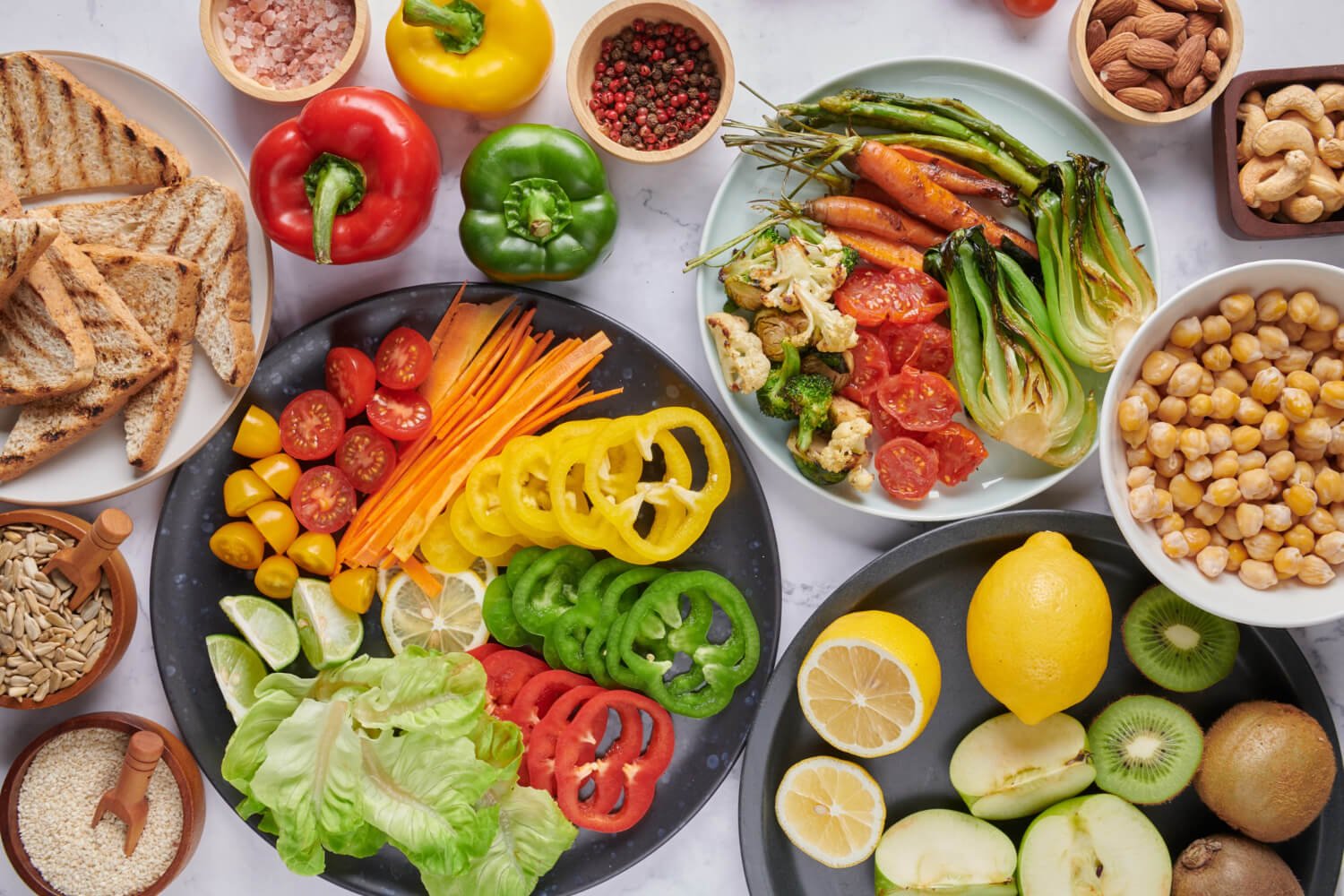
Tools & Equipment That Make Cooking Easier 🥄
You don’t need a chef’s kitchen to cook amazing vegan food, but these tools help:
High-speed blender (for smoothies, sauces, soups)
Food processor (great for hummus, energy balls, veggie burgers)
Sharp knives and a cutting board
Non-stick or cast-iron pans
Rice cooker or Instant Pot
Silicone baking mats or parchment paper
Storage containers for meal prep
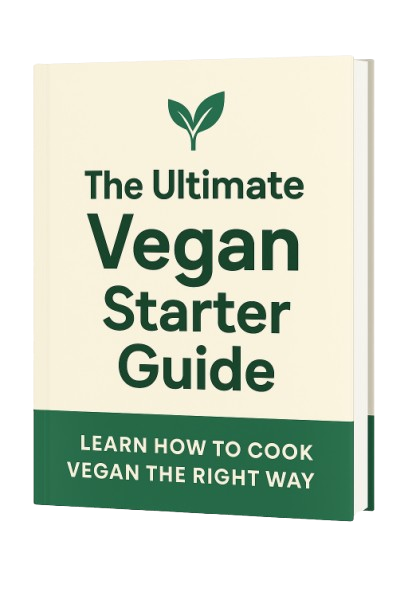
Download Our Free eBook
Get your copy of The Ultimate Vegan Starter Guide and begin your plant-based journey today.
Vegan Cooking Tips for Beginners
Starting from scratch? These tips will help you feel confident:
✅ Start simple — don’t try to master complex recipes on day one
✅ Choose 2–3 go-to meals you enjoy and rotate them
✅ Taste as you go — adjust seasoning often
✅ Embrace leftovers — they’re perfect for lunch the next day
✅ Batch cook grains and legumes for the week

Common Substitutions in Vegan Recipes
Learning a few key swaps makes cooking vegan a breeze:
Eggs: Use flaxseed meal + water, applesauce, or mashed banana
Milk: Replace with almond, oat, or soy milk
Butter: Use vegan butter or coconut oil
Cream: Use cashew cream or coconut milk
Cheese: Try nutritional yeast, vegan cheese, or cashew-based spreads
Honey: Swap with maple syrup or agave nectar
🌱 Pro tip: Always check labels when shopping — many processed foods contain hidden animal ingredients.
Easy Vegan Recipes to Start With 🍲
Don’t overthink it — start with the basics you already enjoy!
Some beginner-friendly meal ideas:
Oatmeal with almond milk, berries, and flax seeds
Chickpea salad sandwich with vegan mayo
Stir-fried veggies with rice and soy sauce
Lentil soup with crusty bread
Vegan chili or pasta with tomato-based sauce
Smoothie bowls with nut butter and seeds
These meals are simple, satisfying, and perfect for daily life.
Mistakes to Avoid When Cooking Vegan
❌ Don’t rely only on processed vegan products — focus on whole foods.
❌ Avoid skipping protein — include legumes, tofu, or tempeh regularly.
❌ Don’t forget about B12 — plan supplementation if needed.
❌ Avoid bland food — spices and sauces are your best friends!
Every plant-based kitchen needs flavor, balance, and experimentation.
Vegan cooking is accessible, enjoyable, and full of variety. It’s not about being perfect — it’s about progress and discovery.
Whether you’re trying Meatless Mondays, transitioning gradually, or already fully plant-based, this guide gives you the tools to enjoy delicious vegan meals at home.
🌿 Explore, taste, and create — your plant-powered journey starts now.
Still Curious About Veganism?
Our free eBook answers the most common questions and helps you transition smoothly.
Download Now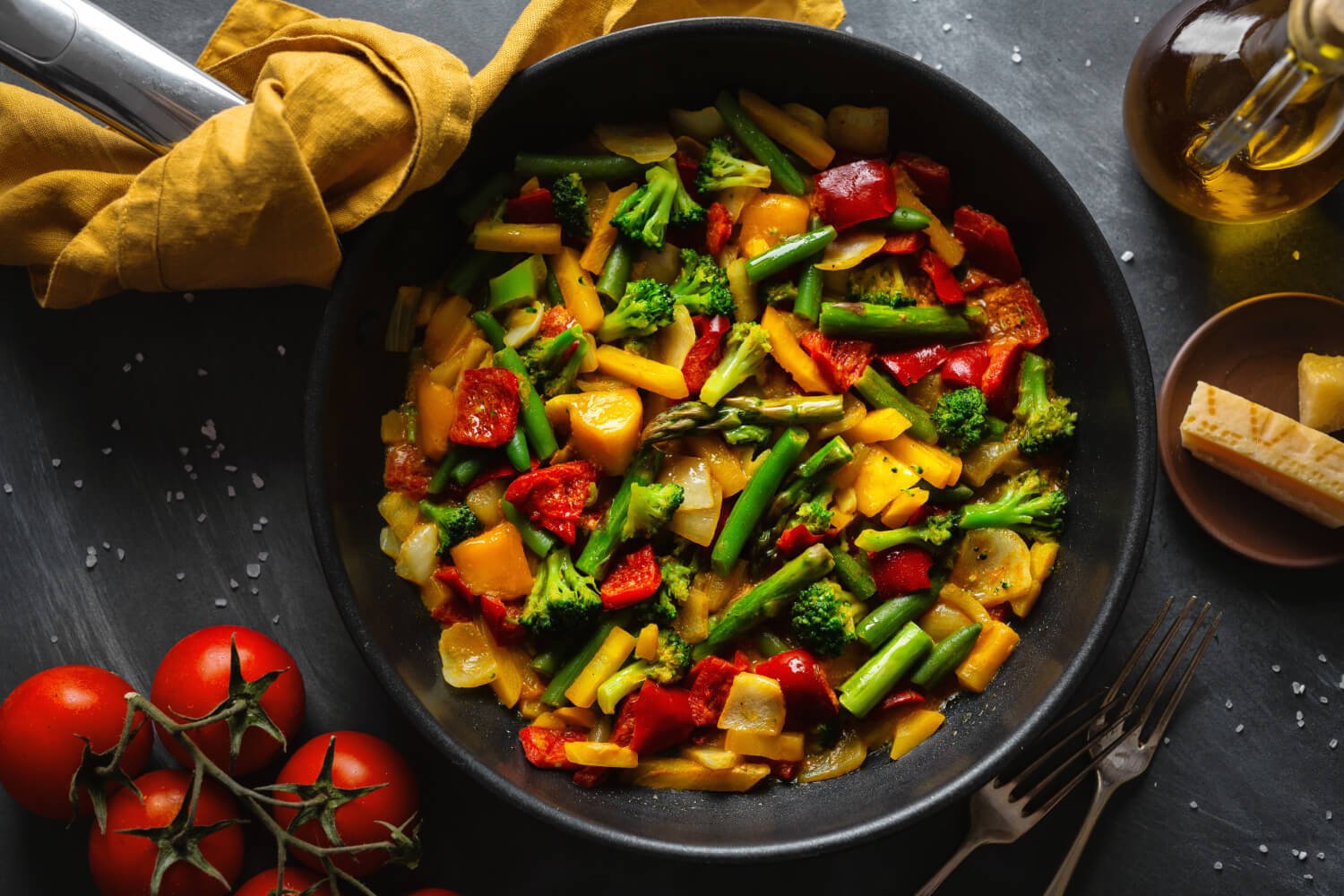
❓ Frequently Asked Questions
✍️ Author's Note: This article was written by The VeganVus Team, a group of passionate plant-based creators dedicated to helping you live a kinder, healthier life. 💚
🔍 Explore More Vegan Guides
📚 Want to Learn More About Veganism?
Explore Vegan Basics
Vegan Insights
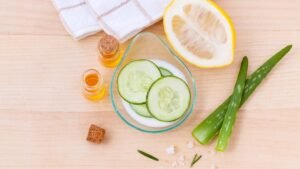
Top Cruelty-Free Vegan Body Care Essentials for Every Season
Finding the perfect body care routine that’s both vegan and cruelty-free can feel like a

How to Build a Stylish Vegan Wardrobe (Without Breaking the Bank)
Building a wardrobe that’s both fashionable and ethical might sound expensive — but it doesn’t

How to Build a Sustainable Vegan Home: Simple Steps for Greener Living
Living a compassionate lifestyle goes beyond what you eat — it extends into your home,

10 Easy Vegan Swaps to Live a More Sustainable Lifestyle
Embracing a sustainable vegan lifestyle is one of the most powerful ways to reduce your
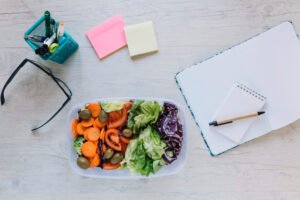
How to Create a Weekly Vegan Self-Care Plan (Relaxation, Nourishment & Mindfulness)
Embracing a vegan lifestyle goes beyond food — it’s about nourishing your entire being 🌿.


